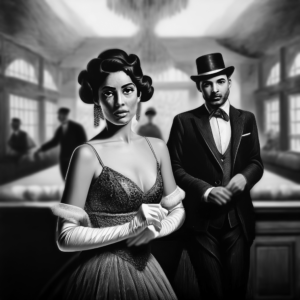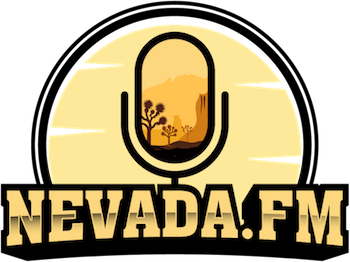
It’s the turbulent world of Tonopah in 1913. The Big Casino stood as a beacon of fortune amidst shifting sands. As the state tightened its grip on gambling, its charismatic owner faced personal and financial ruin amid a bitter divorce and mounting debts. When a Federal Judge intervened, an unexpected entity took the reins of the casino, plunging into a whirlwind of moral debates and economic upheaval. We’re talking about a tale of Tonopah’s nightlife scene, federal overreach and local intrigue, forever intertwining the fates of those who dared to play under Uncle Sam's watchful gaze.
TRANSCRIPT
In the heyday of Tonopah, amidst the tales of silver mines and fortunes won and lost, stood the Big Casino, an institution where luck held court and chance danced in the desert air.
Casinos thrived as centers of entertainment, meticulously designed to entice with music, dance, and the allure of fortune. Skilled musicians played for generous salaries, while young women, known as ‘hurdy-gurdies,’ danced with patrons, boosting drink sales and earning their establishments the nickname of "Hurdy-Gurdy Houses."
By 1913, winds of change swept harshly through Tonopah. Nevada tightened its grip on gambling, casting a shadow over the once-thriving casino. Its owner, William S. Johnson, a respected figure in the community, faced mounting debts and personal turmoil threatening to engulf him.
Johnson's descent into a tumultuous divorce began amidst talk of extravagant spending and infidelity, fueled by Tonopah's gambling allure. As proprietor of the Big Casino, he reveled in its golden age, hosting lavish parties and charming high rollers. Yet, beneath the glittering façade, financial pressures mounted, and rumors of marital discord simmered. His wife, once steadfast, grew weary of the lavish lifestyle and debts that strained their union. Allegations of mismanagement added fuel to the legal fire, escalating their private turmoil into a bitter public spectacle.
Into this turbulent arena stepped Federal Judge William W. Morrow, whose gavel wielded unexpected power in the quiet corners of the West. Amidst the divorce proceedings, Morrow issued an injunction that reverberated through Tonopah. By twist of fate, or the whimsy of justice, the Big Casino fell under new management.
The new manager? None other than Uncle Sam.
With a stroke of his pen, Morrow appointed a receiver to oversee Johnson's assets, effectively placing the Big Casino under federal control. News spread quickly through Tonopah, evoking disbelief, amusement, and cautious curiosity.
Joe Monahan, known for his no-nonsense demeanor, assumed the role of caretaker, tasked with managing the daily operations of the establishment under the auspices of the federal government.
The transition was fraught with challenges. Local newspapers buzzed with speculation, casting the federal intervention as both a moral quandary and an economic lifeline. Some viewed it as federal overreach, while others saw it as a sensible solution to salvage a failing enterprise.
For a brief, surreal period, the Big Casino flourished under federal stewardship. The dance hall reverberated with laughter and the clink of coins, while Monahan vigilantly ensured patrons adhered to regulations, even as those regulations blurred amidst the irony of federal oversight.
Yet, like all tales of chance, the casino's luck eventually waned. In mid-November, Nye County commissioners, wary of federal involvement and local sentiment, revoked the casino's liquor license. The music faded, the tables grew silent, and the Big Casino faced an uncertain future once more.
When the dust settled and Uncle Sam's tenure as Tonopah's hurdy-gurdy house operator ended, it left behind a legacy that defied easy categorization. Some dismissed it as bureaucratic oddity, while others quietly pondered the broader implications of federal intrusion into local entertainment and nightlife.
The Big Casino persisted for nine more years until tragedy struck in August 1922, a devastating fire reduced it and neighboring structures to ashes.
The tale of Uncle Sam running a hurdy-gurdy house prompts questions:
What were the social and legal ramifications of federal management of a dance hall and gambling operation in early 20th-century Nevada? How did local residents perceive federal intervention in their community's entertainment and nightlife during a time of shifting moral standards? What impact did this brief period of federal oversight have on Tonopah's financial and social fabric, and what lessons can be gleaned from this unique chapter in American history?
These questions invite reflection on the unusual circumstances surrounding the Big Casino's federal oversight, revealing the intricate interplay of law, morality, and economics in a changing era.
Amidst it all, somewhere in the heart of Tonopah, the spirit of the Big Casino lingered, a testament to resilience and the enduring allure of fortune, whether guided by private enterprise or the hand of Uncle Sam herself.
Also check out:
"A History of TONOPAH, NEVADA",
Robert D. McCracken.
Nye County Press TONOPAH NEVADA,
Page 41.
U.S. Runs Gambling House in Nevada: https://author.doresabanning.com/u-s-runs-gambling-house-in-nevada/
"WAS UNCLE SAM A WHITE SLAVER?" [sic, title transcribed as found], Tonopah daily bonanza., (Tonopah, Nev.), 10 June 1915.
Check out our full podcast archive here.


